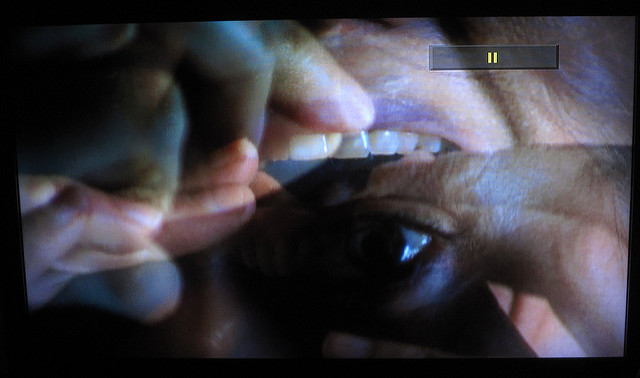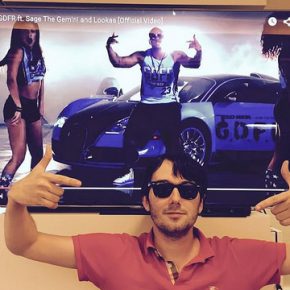We seem to be living through a renaissance of American TV shows, from Twin Peaks to House of Cards. Some of us spend dozens of hours a week just sitting in front of our laptops working our way through episode after episode, season after season. This is the other side to the work day for a lot of people.
If I were to give this wave a starting point, I would say it began with The Sopranos. The show’s portrait of a mobster in therapy captivated millions. It was a part of a new segment of pop culture exploring the fraught contradictions of masculinity. This is what the show had in common with American Beauty and Fight Club.
Since the show first aired nearly 20 years ago, the average coach potato has had plenty of great dramas to watch: The Wire, Mad Men, Dexter, Breaking Bad, Better Call Saul, House of Cards and True Detective. It’s quite a roster, even with the amount of garbage on offer.
From one perspective, Tony Soprano is a success story. The epitome of social mobility, a man of a humble working-class immigrant background, who has risen to the peak of his industry, he has moved from the North Ward to the North Caldwell suburbs. It could be that his popularity with audiences is down to the fact that he shows up the emptiness of the so-called ‘American dream’.
In the pilot, Tony confides in Dr Melfi that he feels that the best is over. “It’s good to be in something from the ground floor,” he says. “I came too late for that and I know. But lately, I’m getting the feeling that I came in at the end.” He’s talking about the Mafia, but he could well be talking about the state of late twentieth century America.
The same can be said for Don Draper in Mad Men. He has everything from the suits and the office to the beautiful wife, lovely children and the picket fence around his yard. Yet Draper’s significance is in the cynical truths he conveys about consumer society. This was summed up well in one line in the first episode: “What you call love was invented by guys like me, to sell nylons.”
By the time these shows aired the US had been the preeminent world power for the best part of a century, and even as the empire may be entering a long period of decline, the country retains vast cultural power. Indeed, the world is captivated by American pop culture. Netflix is even being watched in Cuba (albeit not by the poorest of Cubans).
The end of the Cold War left Americans wondering about the possibilities of a ‘peace dividend’, while neocons celebrated the ‘end of history’. The prevailing assumption was that the decades of US aggression had produced a new order, which would ultimately be better than anything that had come before. Yet this was not the case.
Instead of peace, the US was left as the unchallenged superpower and the world went from being divided between two great powers to being a unipolar globe. The result was more war, even though capitalism had allegedly conquered the world. Supposedly the age of grand narratives and ideological battles had come to an end: liberal democratic capitalism was the only game in town.
It is no accident that the great dramas of today are explorations of the dark sides of mainstream American society. The Sopranos deconstructs the mob with therapy and family feuds, whereas Mad Men pushes us to re-evaluate products and advertising. This process of re-evaluation is taken to the presidency with House of Cards, in which Frank Underwood stomps to power leaving a trail of corpses in his wake.
Breaking Bad is the story of a respectable science teacher who cooks meth to pay for his health bills. The predicament of private health-care is one which most people in the US can understand, even if they are insured. Even in terms of stealing bread to feed your starving family Breaking Bad showed up the moral limits of this. In the end, Walter White becomes a monster and ruins the lives of everyone he holds dear.
Sometimes it seems like there is a great series for every Hollywood debacle. It’s almost as if film as a medium has gone into recession. It may no longer be the mirror for society to look into and reflect on itself. Just as poetry was superseded by the novel, and the novel by cinema, arguably the TV series is taking the place of film as the dominant art form today.
This is partly due to the technological basis that has emerged with the internet. The rise of streaming partially provided the material pre-conditions for this and it would be tempting to see it as a democratising impulse. However, what exactly changed the US studio system to produce such quality television is unclear. Certainly the decline and decline of mainstream cinema has aided this shift.
If you can watch films at home after work, the length of the movie seems somewhat finite. It makes sense to binge watch multiple episodes of a particular show over several days. The advantage for companies like Netflix is clear too. A season of 13 hours can guarantee subscribers stick around for a while. Just think. That’s where the profit motive kicks in. You clicking to watch the next episode.
Photograph courtesy of Tony Alter. Published under a Creative Commons license.





